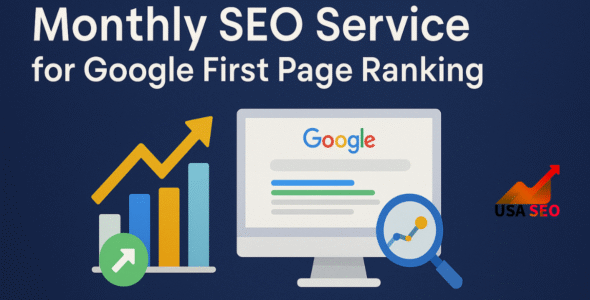Google Maps evaluations are essential for our company’s reputation and growth. Positive reviews increase trust, local SEO, and exposure, attracting more consumers. A steady supply of positive comments helps our company rank higher in search results, making it more accessible. Negative evaluations, on the other hand, if ignored, might hurt our reputation and undermine client confidence. Addressing issues promptly and providing answers may transform a poor experience into a good one, demonstrating our dedication to customer satisfaction. Engaging with consumers and promoting good feedback strengthens our image as a dependable firm. Active management of Buy Google Maps reviews is critical for long-term development and competitiveness, and it plays an important part in our company’s success.
Introduction to Google Map Reviews
In today’s digital environment, Google Map Reviews play an important role in connecting companies with prospective clients. When users search for local companies, Google Maps shows not just their location and hours of operation, but also customer reviews and ratings. These evaluations are an effective type of social proof, providing vital information about the quality of a company’s goods, services, and overall customer experience. For many people, reading reviews on Google Maps is the first step in determining where to spend their money and time. Positive evaluations may considerably improve a company’s legitimacy and trustworthiness, increasing its chances of being picked over rivals.
They may also boost local SEO, allowing the company to rank better in search results and become more visible to surrounding clients. However, if bad reviews are not handled appropriately, they may harm a company’s brand and drive away prospective clients. The way a company handles reviews, both favorable and bad, is critical to preserving customer happiness and loyalty. Businesses may strengthen customer connections and boost their online image by actively responding to reviews, resolving problems, and embracing comments. In a time when online feedback has so much power, knowing and managing Buy Google map reviews is critical for any company looking to succeed in a competitive market.

Positive Effects of Google Map Reviews
Positive Google Map Reviews may have a big and favorable influence on a company. Here are several major advantages:
- Improved Local SEO: Positive reviews help a company rank higher in local search results. Google considers customer input when deciding search results, thus a large number of good reviews may boost exposure, making it simpler for prospective consumers to locate the company.
- Enhanced Credibility and Trust: Positive ratings increase client trust. People are more inclined to pick a firm with good ratings and positive comments from others. This social evidence convinces prospective clients that the company provides a dependable and excellent experience.
- Greater Foot Traffic and Sales: As visibility and trust improve, companies often see greater foot traffic and sales. Positive evaluations serve as endorsements, encouraging prospective consumers to come, use the service, or make a purchase.
- Stronger Customer Relationships: Responding to favorable reviews demonstrates respect for customers, which fosters a stronger relationship. This may develop loyalty and encourage repeat business.
- Competitive advantage: A company with a lot of favorable feedback stands out from the competition. This is especially significant in congested local marketplaces where customers depend on feedback to make educated purchases.
Overall, favorable Google Map Reviews may help a company grow and succeed by improving its internet visibility, reputation, and client base.
Negative Effects of Google Map Reviews
Positive Google Maps Gold Reviews may be beneficial to a company, while poor reviews might have the opposite impact. A single poor review may damage an otherwise excellent reputation and drive prospective consumers away. Google’s algorithm favors companies with more ratings, but bad reviews may overwhelm good ones if left unchecked. Negative reviews may result in lower search ranks, making it more difficult for a company to be noticed by new clients.
In today’s internet economy, when word of mouth and online reputation are so vital, a bad review may swiftly spread. An unhappy customer’s complaint may reach thousands of prospective customers, harming the company’s image and resulting in a large decrease in income. A company with a history of poor reviews may be seen as untrustworthy or unprofessional, even if such reviews reflect a tiny percentage of its total client base.
Another difficulty that organizations confront when receiving unfavorable feedback is the psychological effect on their personnel. Constantly getting negative comments may weaken staff morale and generate a feeling of discouragement, perhaps affecting the quality of service offered. To avoid this and maintain the company’s image, business owners must respond to bad evaluations as soon as possible.

Strategies for Leveraging Positive Reviews
Rather than just waiting for favorable comments, best rated seo companies should take proactive actions to encourage pleased consumers to post feedback on Google Maps. One excellent method is to make it as simple as possible for consumers to submit feedback. This may be accomplished by sending follow-up emails with direct links to the review page or by including review prompts on the company’s website or receipts. Businesses may boost the likelihood of obtaining favorable feedback by soliciting evaluations at the appropriate time—for example, after a successful transaction or service delivery.
Another technique is to develop client connections via outstanding service and memorable experiences. Customers who are satisfied with a product or service are more inclined to share their good experiences online. A tailored approach, such as recognizing repeat clients or addressing their specific requirements, may go a long way toward establishing loyalty and generating positive feedback.
In addition to soliciting evaluations, companies should actively connect with their consumers by reacting to feedback. When a firm takes the time to thank clients for their good comments, it demonstrates that it recognizes and respects their input. This contact may reinforce the customer’s favorable perception of the company, encouraging others to share their own experiences as well.
Mitigating the Impact of Negative Reviews
Negative feedback might be frustrating, but it does not have to ruin your company if handled properly. Here’s a thorough strategy for reducing the effect of negative feedback:
- Respond promptly and professionally: Responding immediately to unfavorable reviews demonstrates that you respect comments and want to remedy concerns. Maintain a courteous tone, apologize for the situation, and provide a solution. This indicates proactivity and a dedication to providing good service to prospective clients.
- Acknowledge the Issue: Demonstrate empathy by recognizing the customer’s problem, such as “I’m sorry you had a frustrating experience.” This helps repair trust, converting unsatisfied customers into loyal ones and demonstrating to others that you appreciate input and are devoted to change.
- Take the Conversation Offline: If the issue is difficult, allow the client to continue the conversation privately (by email or phone) to address it in a more intimate context. For delicate concerns, encourage consumers to discuss them discreetly by email or phone. This enables for a more expedient conclusion while preventing additional public aggravation, demonstrating your commitment to make things right.
- Monitor Reviews regularly: Keep track of all comments to spot trends and swiftly resolve reoccurring concerns. Monitoring evaluations frequently helps to identify problems early on. Identifying persistent issues in feedback indicates opportunities for improvement. Responding quickly prevents unfavorable reviews from accumulating and harming your reputation.
- Learn and Improve: Negative evaluations provide useful criticism. Use them to discover reoccurring problems, such as delayed service or poor product quality, and take proactive steps to improve. Demonstrating development and resolving issues may convert unsatisfied consumers into committed champions.
- Encourage Positive Reviews: While you can’t eliminate all bad comments, encouraging pleased customers to submit positive reviews may help balance things out. A bigger amount of favorable reviews boosts your total rating, but ask for input in a genuine, non-pushy manner.
- Request Removal of Inappropriate Reviews: If a review contains abusive language, personal attacks, or misleading claims, you may ask Google to remove it. However, Google will not delete reviews just because they are bad. Only pursue this if the review violates the criteria.
By reacting intelligently and implementing adjustments based on criticism, you may reduce the long-term impact of bad evaluations.

Measuring the impact of reviews
To understand how Mecca Google Maps reviews affect a company, it is critical to quantify their impact. Google Analytics may give useful information on how website traffic changes in response to an inflow of favorable or bad reviews. Businesses that get a sudden influx of favorable reviews, for example, may see an increase in website traffic or phone calls.
Review monitoring technologies also enable firms to track review sentiment over time. Tracking patterns in client feedback allows company owners to find areas where they shine and where they need to improve. Monitoring reviews and ratings regularly allows firms to keep informed about their online reputation and adapt their strategy as needed.
Another good measure to watch is the conversion rate of clients who contact the company using Google Maps. Understanding how reviews connect with revenue allows company owners to calculate the ROI of their online reputation activities.
Case Studies & Examples
Case studies and examples demonstrate how businesses can effectively leverage Google Maps reviews to improve reputation, drive sales, and grow.
- Local Restaurant in New York
A New York restaurant noticed increased foot traffic after getting great feedback about its pleasant staff and creative food selections. Their presence on Google Map Reviews resulted in more consumers and more revenue. They connected with consumers by praising them and resolving their problems, which boosted their reputation.
- Small Technology Store in Chicago
A Chicago electronics business received unfavorable feedback regarding customer service yet responded empathetically and offered alternatives. They undertook staff training, and favorable ratings gradually grew, demonstrating their dedication to continuous development and superior service.
- Hotel Chain in Miami
A hotel in Miami received unfavorable feedback owing to maintenance difficulties. They reacted quickly, apologized, and made corrections. As a consequence, their ratings rose, highlighting the value of addressing concerns openly and prioritizing customer happiness.
- E-commerce Store in Los Angeles
An e-commerce shop received mixed feedback after shipment delays. They apologized, gave incentives, and described the efforts done to reduce shipment times. Customer attitude altered, resulting in positive evaluations and a higher rating.
These examples highlight how firms may use feedback to drive development by resolving issues and demonstrating a commitment to continuous improvement.

Future Trends and Recommendations
As technology advances, the future of Google Map Reviews and their influence on companies is expected to undergo substantial changes. One trend to watch is the growing relevance of AI-powered review management. Google is always upgrading its algorithms to better evaluate and display reviews, allowing companies to monitor consumer sentiment and solve concerns more efficiently. Businesses will also need to be more proactive in connecting with clients via answers, using automated technologies like AI to provide prompt, individualized responses. Another potential trend is the increased use of visual information in evaluations, such as images and videos. Customers are increasingly sharing images of their experiences, and companies that understand this trend may utilize visual material to emphasize their goods or services, making their listings more interesting and useful.
As voice search grows more popular, this is another area to keep an eye on. As more consumers use voice assistants to look for companies, optimizing for voice search and promoting feedback via speech-enabled devices will be critical. Furthermore, video reviews and live streaming, which provide users with real-time comments and insights, may gain popularity.
To remain competitive, firms should continue to track review trends, promote good comments, and emphasize customer pleasure. Companies may benefit from Google Maps Gold Reviews in the long run by adjusting to evolving trends and concentrating on developing a transparent, customer-centric strategy.
Frequently Asked Questions (FAQ)
Here are five commonly asked questions (FAQ) about managing reviews:
How can I enhance my company’s internet reputation?
Encourage pleased customers to post good reviews regularly, reply to negative criticism quickly and professionally, and constantly improve your products or services in response to consumer input.
How should I respond to a negative review?
Respond swiftly and professionally, admitting the problem, apologizing for the experience, and providing a remedy or explanation. Taking the debate offline for difficult subjects might also be beneficial.
Can I erase unfavorable Google reviews?
You cannot delete unfavorable reviews unless they break Google’s standards (for example, abusive language, personal attacks, or misleading claims). In such circumstances, you may request removal; however, negative reviews alone will not be removed.
How do I deal with recurrent concerns in reviews?
If the same problem occurs in many evaluations, interpret it as helpful feedback. Address the issue, make adjustments, and notify consumers that you’re working on it. This might help you avoid additional bad criticism and enhance your service.
How can I guarantee that my consumers provide favorable feedback?
Request feedback from happy clients, preferably immediately after a pleasant encounter. Make it simple by including direct links to your review website, and promote honest, meaningful feedback without forcing people to praise it.
Let us know if you have any questions regarding our monthly off-page SEO services.

Conclusion
In conclusion, Google Map Reviews are an effective instrument for influencing our company’s reputation and success. Positive reviews may increase our exposure, boost consumer confidence, and improve local SEO, resulting in more prospective customers visiting us. However, if bad reviews are not handled swiftly, they might harm our reputation and reduce sales. By reacting swiftly, addressing concerns, and providing solutions, we may turn bad situations into opportunities for growth. Consistent customer engagement and encouragement of good evaluations help to maintain a great reputation and reaffirm our dedication to customer happiness.
In today’s competitive industry, actively managing Mecca Google Maps reviews is critical to preserving growth and a competitive advantage. Understanding the significance of these assessments and incorporating them into our plan will ensure our company’s long-term success and development.
 My Account
My Account 


